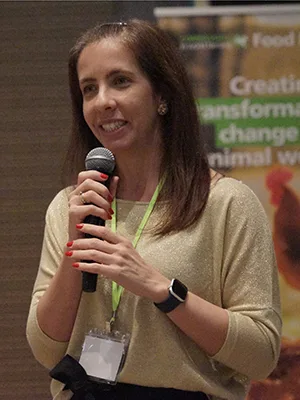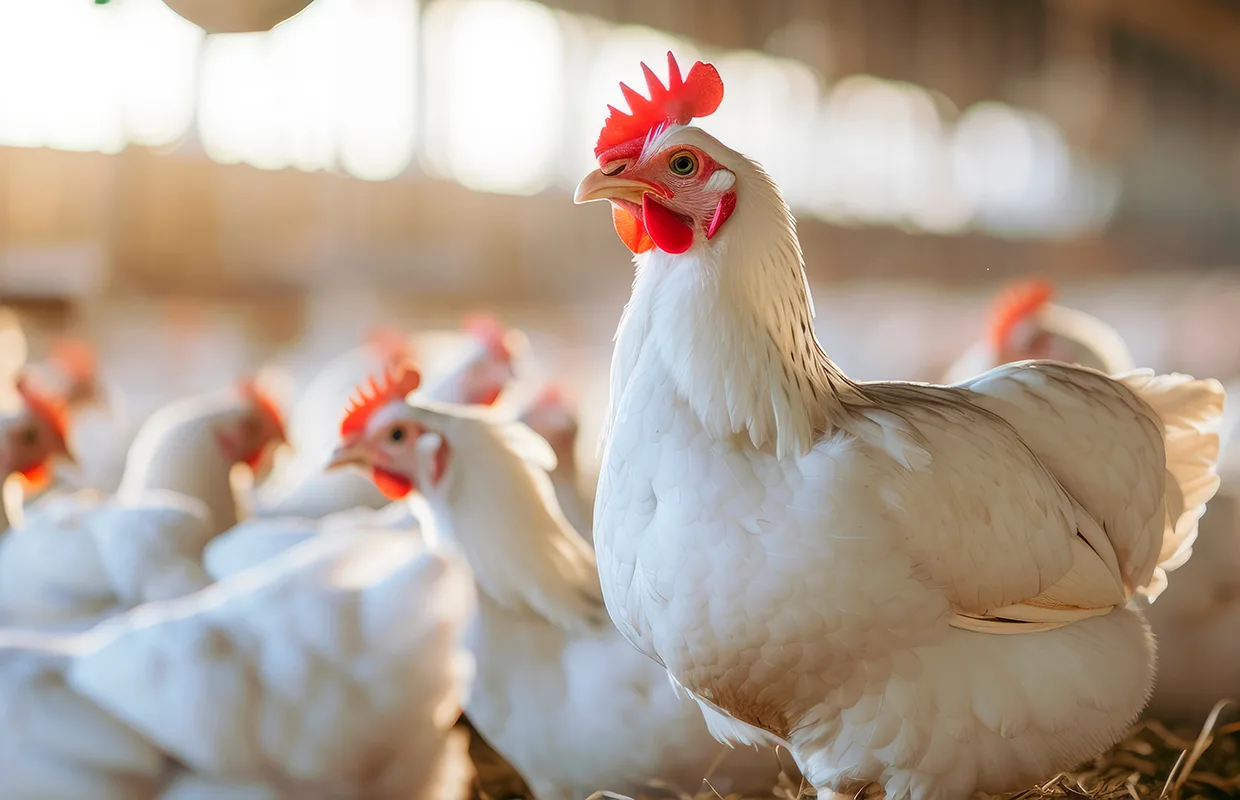Rubia Soares, Senior Food Business Manager at Compassion in World Farming, discusses driving change and improvement in broiler welfare.
BETTER BROILER WELFARE IN THAILAND
In an industry defined by complex supply chains and evolving consumer expectations, Compassion in World Farming (CIWF) is at the forefront of improving farm animal welfare, working with businesses to raise welfare standards across global food systems.
By supporting companies in meeting evolving consumer expectations and regulatory requirements, CIWF helps drive meaningful change that benefits both animals and the industry.
Thailand has made considerable progress in animal welfare, with local companies such as Tan-Khun Organic Farm, KPS Farm, and Klong Phai Farm earning recognition from CIWF for their commitment to better farm practices.
Tan-Khun Organic Farm, winner of the Good Egg Award, is pioneering a new standard in ethical egg production in Thailand by primarily using organic feed and sharing their sustainable livestock methods with a network of local farmers.
The very first Sow Stall Free Award was presented to KPS Farm, a pioneering Thai producer, for implementing a 100 percent sow stall-free system across their entire farm operation, where all sows are group-housed during the dry period.
Klong Phai Farm received both the Good Egg and Good Turkey Awards, highlighting their dedication to ethical and sustainable farming practices, thriving as a provider of high-quality free-range eggs and a choice of farm-to-table products.
Through its ongoing work, CIWF provides businesses with the guidance and practical solutions needed to transition to higher welfare practices. This approach not only improves animal well-being but also strengthens supply chains and enhances long-term business resilience.

DRIVING CHANGE
As Senior Food Business Manager, I am dedicated to driving change in the industry. With five years’ experience at CIWF, I have helped to drive improvements in broiler welfare across the Asia Pacific and Latin America regions and have worked closely with companies in these diverse markets to help strengthen their policies and practices, promoting higher animal welfare standards.
I also help food companies navigate the complexities of improving broiler welfare in their supply chains by guiding them through policy changes, tackling challenges, and supporting long-term commitments.
My background in the meat trade has given me a solid understanding of how the broiler supply chain works and all the moving parts that need to align to translate welfare commitments into measurable progress.
I appreciate the challenges businesses face when making changes, but I also see the opportunities and solutions that can make higher-welfare production a viable choice.
BETTER CHICKEN COMMITMENT
One key initiative close to my heart is the Better Chicken Commitment (BCC). This scientifically-backed set of criteria sets clear guidelines for responsible broiler production and was developed to address core welfare issues in conventional farming – fast-growing breeds, overcrowding, lack of enrichment, and inadequate stunning methods – whilst ensuring solutions remain practical, scalable, and economically viable.
What makes the BCC especially important is its strong foundation in science. It provides an evidence-based framework to improve broiler welfare, which also makes smart business sense.
Many companies are becoming increasingly aware of the reputational and financial risks associated with poor welfare practices, including supply chain disruptions, growing consumer demand for higher-welfare products, and evolving regulations across markets.
The BCC helps businesses future-proof their supply chains, adapt to shifting market expectations, and take a leadership role in ethical food production. It is both achievable and sustainable, providing a pathway for producers and other food companies to transition whilst maintaining profitability.
My work includes supporting companies in gaining clarity on the steps needed to comply with the BCC, sharing successful case studies, connecting them with the right partners, and offering technical guidance to ensure they feel confident in making the transition.
HIGHER ANIMAL WELFARE
Beyond policy and supply chain improvements, CIWF recognises businesses that take action through CIWF’s annual Good Farm Animal Welfare Awards, which celebrate companies taking meaningful steps to improve animal welfare in their supply chains.
At CIWF, we focus on positive collaboration, and the awards celebrate companies that are making a difference by meeting key welfare criteria for the animals in their supply chain. This recognition is incredibly motivating for the industry – it’s my favourite time of year!
And what of the future? I envision one where animal welfare is at the core of a responsible and resilient food system, a future where our food systems are reimagined to prioritise the well-being of animals, the health of our planet, and the resilience of our communities.
There’s still a long way to go, but every step forward matters and the work of our award winners and BCC adopters is driving real change towards this future.
Much remains to be done, but I’m keen to encourage more businesses in the APAC region to make the move to higher animal welfare practices.






























